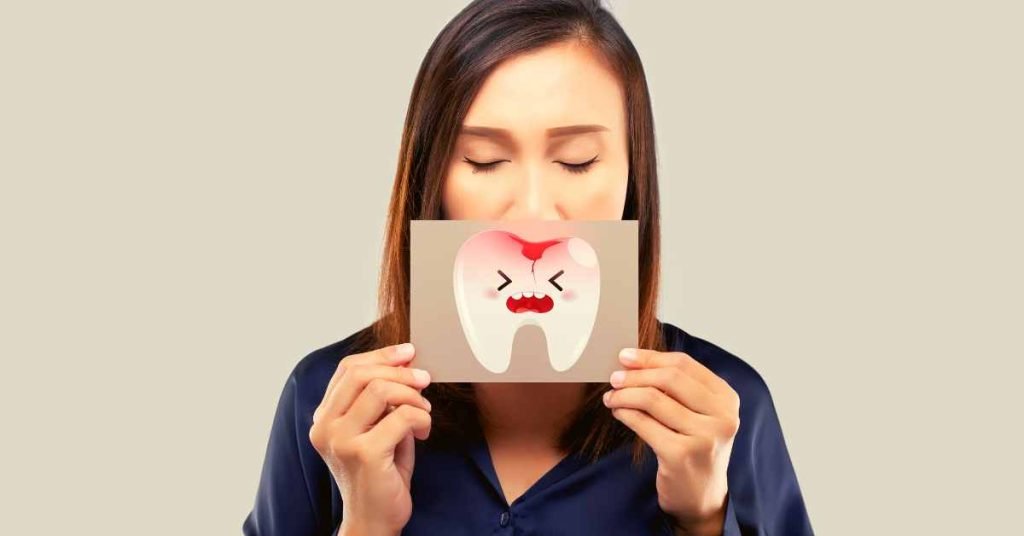Beyond its reputation as a comforting drink, emerging research suggests that tea might play a significant role in oral health, particularly in relieving gingivitis.
Gingivitis, characterized by inflammation of the gums, is a common dental concern that can lead to more severe conditions if left untreated.
In this article, we delve into the intricate relationship between tea and gingivitis, exploring the various types of tea, their active compounds, and how they contribute to maintaining healthy gums.
Understanding Gingivitis

Before delving into the role of tea, it’s essential to understand the basics of gingivitis. Gingivitis is a common and early stage of gum disease, often caused by the accumulation of plaque—a sticky film of bacteria—on the teeth and gums.
When plaque isn’t adequately removed through regular oral hygiene practices like brushing and flossing, it can lead to inflammation of the gums, causing redness, swelling, and bleeding.
If left untreated, gingivitis can progress to more severe forms of gum disease, such as periodontitis, which may result in tooth loss.
Tea Types and Their Composition
Tea comes in various forms, each derived from the leaves of the Camellia sinensis plant.
The primary types include black, green, oolong, and white tea, with herbal teas made from infusions of herbs, fruits, or other plant materials.
While these teas differ in taste and appearance, they share common compounds that contribute to their potential health benefits.
Polyphenols: The Powerhouse Compounds
Polyphenols, a class of antioxidants found in tea, are considered the powerhouse compounds responsible for many of its health-promoting properties. These compounds have anti-inflammatory, antimicrobial, and antioxidant effects, making them crucial in the context of gingivitis. Epigallocatechin gallate (EGCG), a type of polyphenol abundant in green tea, has garnered particular attention for its potential oral health benefits.
Catechins: Guardians of Oral Health

Catechins are a subgroup of polyphenols found in tea, known for their antibacterial properties. Green tea, in particular, is rich in catechins, including epicatechin, epicatechin gallate, epigallocatechin, and EGCG. These compounds have been shown to inhibit the growth of bacteria associated with oral diseases, including Streptococcus mutans, a major contributor to plaque formation and gingivitis.
Flavonoids: Supporting Gum Health
Flavonoids, another class of antioxidants present in tea, contribute to its potential gum health benefits. These compounds exhibit anti-inflammatory properties and may help combat oxidative stress, which is implicated in the progression of gum disease. Quercetin and kaempferol are examples of flavonoids found in tea that have been studied for their anti-inflammatory effects.
Tea and Gingivitis: The Research
Several studies have explored the relationship between tea consumption and gingivitis.
While research is ongoing, existing evidence suggests promising results regarding the potential role of tea in relieving gum inflammation.
Green Tea and Gingivitis
Green tea, with its rich catechin content, has been a focal point in studies examining its impact on gingivitis. Research published in the Journal of Periodontology indicates that green tea consumption may lead to a reduction in periodontal pocket depth and an improvement in clinical attachment levels, both of which are indicators of gum health. The anti-inflammatory and antibacterial properties of green tea catechins are thought to contribute to these positive effects.
Black Tea and Periodontal Health

While less studied compared to green tea, black tea has also shown potential in supporting periodontal health. A study published in the British Journal of Nutrition found that black tea consumption was inversely associated with the prevalence of severe periodontitis. The polyphenols in black tea, though different from those in green tea, exhibit antioxidant and anti-inflammatory properties that may contribute to the observed benefits.
Herbal Teas and Oral Health
Beyond traditional teas, herbal infusions have been explored for their potential in promoting oral health. Research suggests that certain herbal teas, such as chamomile and peppermint, may have anti-inflammatory and antimicrobial properties that could be beneficial in managing gingivitis. However, it’s important to note that the evidence in this area is limited, and further research is needed to establish the efficacy of herbal teas in relieving gum inflammation.
Incorporating Tea into Oral Care
While tea shows promise in supporting gum health, it’s essential to recognize that it is not a substitute for proper oral hygiene practices.
Brushing teeth twice a day, flossing regularly, and attending routine dental check-ups remain crucial for preventing and managing gingivitis.
Nevertheless, incorporating tea into a holistic oral care routine may offer additional benefits.
Choosing the Right Tea

For those looking to leverage the potential benefits of tea for gingivitis relief, choosing the right type of tea is key. Green tea, with its high catechin content, is often recommended for its anti-inflammatory and antibacterial properties. However, individuals can also enjoy black, oolong, or white tea, each bringing its unique flavor profile and potential health benefits.
Optimal Brewing Methods
To maximize the release of beneficial compounds, brewing tea correctly is essential. Steeping tea at the appropriate temperature and for the right duration ensures the extraction of polyphenols and other active ingredients. Avoiding excessive sugar or acidic additives in tea is also advisable to maintain overall oral health.
Consistent Consumption
Consistency is key when incorporating tea into an oral care routine. While occasional tea consumption may offer some benefits, regular and moderate intake is more likely to have a positive impact on gingival health. Aim for a balanced approach, considering individual preferences and sensitivities.
Final Word
Tea, with its rich history and diverse array of types, has emerged as a potential ally in the fight against gingivitis.
The polyphenols, catechins, and flavonoids present in tea contribute to its anti-inflammatory, antimicrobial, and antioxidant properties, which may aid in relieving gum inflammation.
While research is ongoing, current evidence suggests that incorporating tea into a comprehensive oral care routine can be a flavorful and potentially beneficial practice.
As we continue to unravel the intricate relationship between tea and gingivitis, embracing this ancient elixir may offer a soothing complement to modern oral health practices.
MEDICAL DISCLAIMER
Itsnevernotteatime.com cannot and does not contain medical/health advice. The medical/health information is provided for general and educational purposes only and is not a substitute for professional advice.




